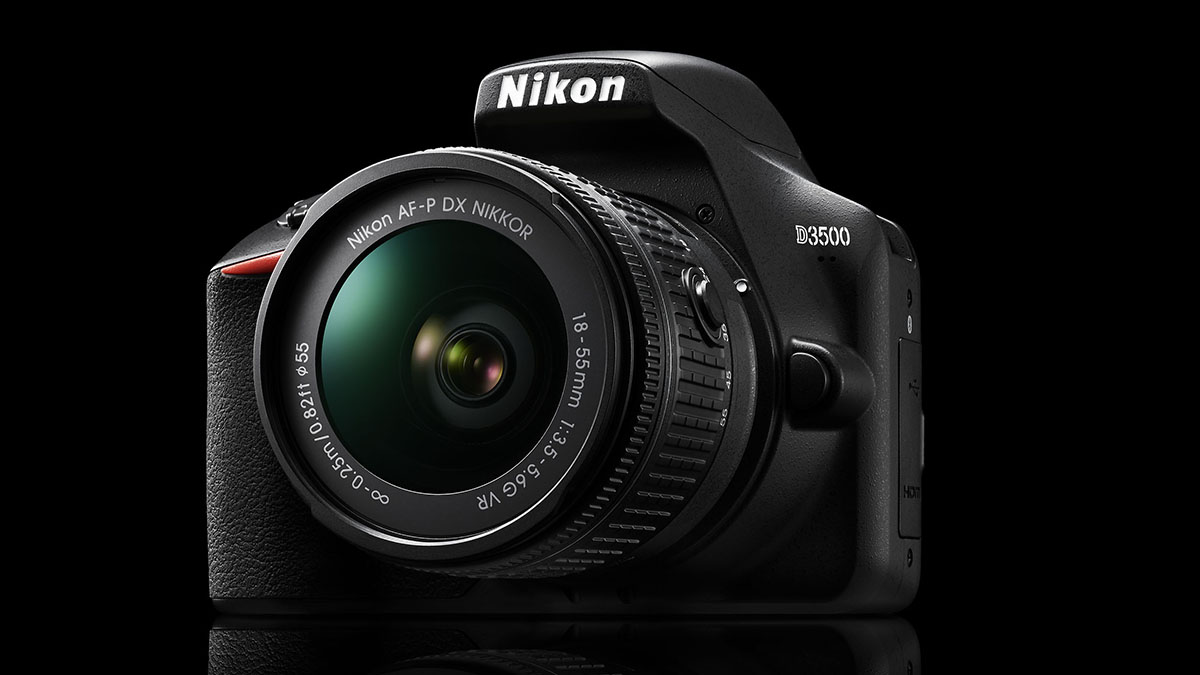Nikon D3500 vs D3400: 5 key differences you need to know
An already popular camera has just gotten better

Sign up for breaking news, reviews, opinion, top tech deals, and more.
You are now subscribed
Your newsletter sign-up was successful
Given how much Nikon’s new Z system stands to shake up the mirrorless market, it’s perhaps unsurprising to see that it’s launched its new entry-level DSLR, the Nikon 3500 without too much of a fuss.
Even so, the new camera updates the hugely popular D3400, and the changes Nikon has made for this latest iteration mean the line should continue to be just as much of a smash with first-time users as it historically has been.
Here, we dive into the spec sheet to get a better idea of exactly what Nikon has changed between the two models.
Nikon D3500 vs Nikon D3400: sensor
While the D3500 mirrors the D3400 in offering an effective pixel count of 24.2MP from a DX-format (APS-C) sensor without an optical low-pass filter, Nikon’s US press release states that this sensor is newly developed.
The spec sheet shows it to have 24.78MP in total, rather than the 24.72MP count of the D3400. Quite why Nikon has opted for a new sensor, and what that means, is unclear, but hopefully it'll lead to improvements in image quality.
Nikon D3500 vs Nikon D3400: battery life
One thing that sets the D3400 apart from its rivals is its battery life. While we normally find such models can persevere for around 600 or 700 frames on a single charge, the D3400 managed a staggering 1,200 frames (according to CIPA ratings).

As impressive as that was, Nikon has somehow managed to boost this to 1,550 frames per charge on the D3500, despite it using the same EN-EL14a battery. This represents a 30% increase, and will no doubt be appreciated by those shooting for a full day without easy access to a power point.
Sign up for breaking news, reviews, opinion, top tech deals, and more.
Nikon D3500 vs Nikon D3400: design
The D3500 brings some of the features that made the D5600 shine down to a cheaper price point. In the hands, the first difference you’ll notice is that the grip is more substantial, which should not only help with handling overall, but also when using longer and/or heavier lenses.

The rear plate has been revamped too. The buttons that line the left-hand side of the D3400's LCD have now migrated to around the top and right-hand side of the display on the D3500, with the info button that resides on the D3400’s top plate joining them.
Additionally, the live view button on the D3400’s rear is now a lever around the mode dial on the D3500's top plate. The only other difference is that the flash button from the D3400’s front plate has now crept around the back too.
Nikon D3500 vs Nikon D3400: size and weight
The D3500 shaves 30g off the weight of the D3400’s body, weighing 365g rather than its predecessor's 395g without a battery or memory card in place. This is a minor difference, and probably not one that will be appreciated in use, but it’s welcome all the same.

The D3500 has the same 124mm width as the model it updates, but it's 1mm shorter and 6mm thinner than the D3400, at 97mm and 69.5mm respectively. Again, those are hardly big figures, but even small incremental reductions in size will help the model to stay competitive against a slew of mirrorless rivals.
Nikon D3500 vs Nikon D3400: price
Cost is a key factor for this market, so it’s welcome to see Nikon delivering the new model at a more attractive price point than before, at least in the US.
The D3400 was launched at $649 with its AF-P DX NIKKOR 18-55mm F3.5-5.6 VR optic, but the newer D3500 will land at just $499.95 with the same lens. Another kit option, which sees the camera bundled with both the aforementioned lens and AF-P DX NIKKOR 70-300mm f/4.5-6.3G ED lenses, will be made available at a suggested retail price of $849.95 in September.
Pricing is somewhat different in the UK, however, with the £499 kit retail price actually slightly higher than the £490 price of the D3400. Those not fussed about VR can save £20 and grab it for £479 for the non-VR version, while those in the Australia can get the VR kit for AU$1,099.